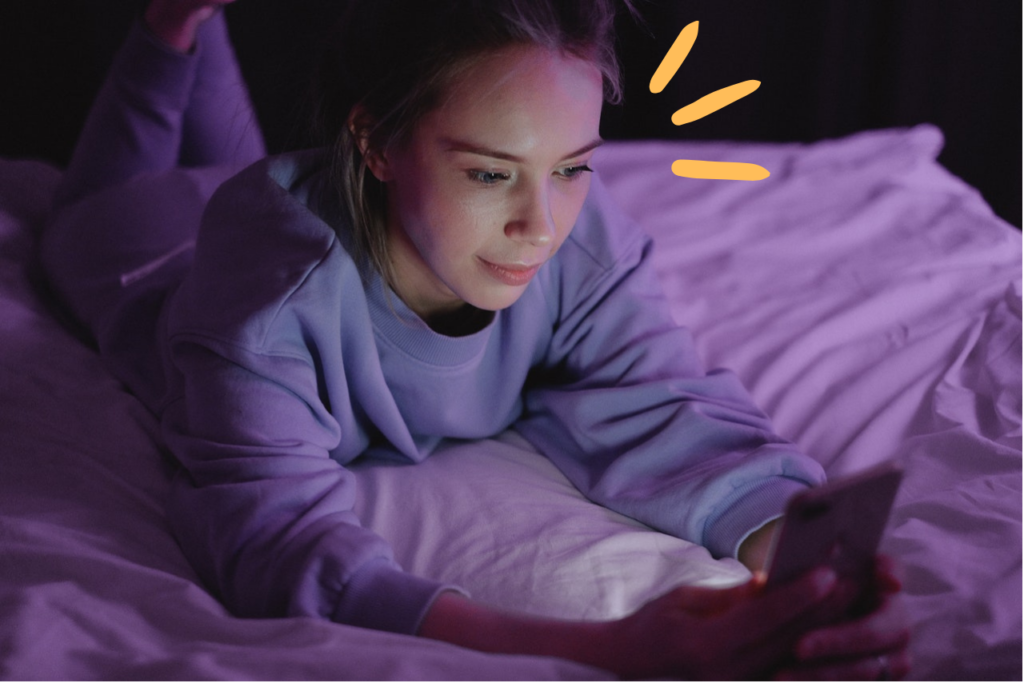We live in an age where technology is ever-present, and screens are a huge part of our lives. From laptops to smartphones to tablets, most people spend hours each day looking at digital devices with little thought given to the effect it has on their eyes. But excessive screen use can have serious consequences for your vision health.
From eye strain and headaches to blurred vision and dry eyes, all these symptoms can cause long-term damage if left unchecked. Even more concerning is that some studies suggest there may be links between heavy screen exposure and permanent retinal damage over time. It’s important, then, that we understand how screens affect our eyes so we can take actionable steps toward protecting them from potential harm.
Blurred Vision
Blurred vision represents a very common, 21st-century problem, and it’s something that many people experience after prolonged screen use. This is because when we concentrate on one area for too long, our eyes become less able to focus on far-away objects or small prints.
While this can usually be remedied with a break from screens – or simply by shifting our gaze away from the monitor – in most cases, an appointment with the local optician is the best option for correcting vision. Blurry visions often come with headaches, making it even more important to get the issue checked out, especially if you experience any other vision problems.

Eye Strain
One of the most common effects of excessive screen time is digital eye strain. This symptom happens when your eyes become tired from looking at a device for too long and can result in soreness, dryness, or just plain exhaustion.
The best way to prevent eye strain is by taking regular breaks throughout the day – even if it’s just to go for a short walk or grab a cup of coffee – and ensuring that your screen is set up at the correct height for you. It’s also important to make sure you are sitting in an ergonomically sound position, as this will reduce any unnecessary strain on your eyes.
Most eye strain symptoms can be relieved with rest, but if the issue persists, it’s essential to seek help from an optometrist or ophthalmologist.

Headaches
Headaches can also be caused by long periods of screen use, and this is often due to the fact that we tend to blink less when focusing on digital devices. Blinking helps our eyes stay hydrated and prevents them from becoming overly dry. To prevent this, it’s important to remember to take regular breaks during prolonged screen sessions and to blink more often.
Additionally, the 20-20-20 rule is a good habit to get into – every 20 minutes, look away from your screen for at least 20 seconds and focus on something that’s at least 20 feet away. When it comes to headaches and eye strain associated with screen use, prevention is key. And migraines can easily affect our lifestyle and productivity, so it’s even more important to be proactive.
Dry Eyes
Dry eyes are another symptom of excessive screen use, and it typically occurs when we don’t blink enough or spend too much time in dry, air-conditioned environments. To prevent this, make sure to keep your eyes hydrated by drinking plenty of water throughout the day and avoiding alcohol or caffeine – both can cause dehydration.
Additionally, using an artificial tear or eye lubricant can help keep your eyes from becoming too dry. Furthermore, you can also purchase protective eyewear, such as blue-light-blocking glasses, to reduce the amount of screen glare and protect your eyes from further damage.

Insomnia & Sleep Deprivation
This is because the blue light emitted from digital devices can suppress melatonin production in the brain and disrupt our natural circadian rhythms. To combat this, make sure to turn off your screens for at least an hour before going to bed and keep any electronic devices out of your bedroom.
Additionally, blue light-blocking glasses can also be extremely helpful in reducing the effects of screen glare and allowing you to get a good night’s rest. In a lot of instances, people find that exercising or meditating before bedtime can also help to reduce the negative impacts of blue light exposure.
Conversely, if you’re in a situation where you absolutely need to use screens at night, then make sure to dim the brightness as much as possible and also invest in blue light glasses if you want to have a good night’s sleep later on.
Increased Risk Of Nearsightedness Or Myopia
Nearsightedness, also known as myopia, is becoming increasingly common in both children and adults. Scientists believe that this is due to our growing dependence on digital devices for work, leisure activities, and even social media. To lessen the risk of developing nearsightedness, be sure to take frequent breaks from screens throughout the day and look away from your monitor every 20 minutes.
It’s also important to make sure that you are sitting in an ergonomic position and that your screen is set up at the correct height for you. Finally, avoid spending too much time on digital devices late at night or in the evenings – instead, opt to read a book or go outdoors to spend time in natural light, even if the sun has set.
Permanent Retinal Damage Over Time
Finally, research suggests that prolonged and excessive use of digital devices can lead to permanent retinal damage over time. This is due to the fact that the blue light emitted from screens can cause oxidative stress in the eyes and even destroy photoreceptors. To reduce your risk of this type of damage, be sure to take regular breaks throughout the day and avoid staring at screens for too long.
Additionally, you can purchase protective eyewear or blue-light-blocking glasses to reduce the amount of glare on your screen and protect your eyes from further damage.
The Bottom Line
Overall, it is important to remember that excessive use of digital devices can cause a variety of eye issues, and it’s important to take steps to protect your vision. By following the tips outlined above, you can help reduce the effects of screen use on your eyes and ensure that your vision stays healthy. Finally, if you experience any eye issues or discomfort, be sure to consult your doctor to discuss treatment options and prevent further damage.
*This article is not intended to replace medical advice, diagnosis or treatment given by a qualified health professional. Instead, this article only provides information, not advice. For any medical enquiries, always consult your GP first*





